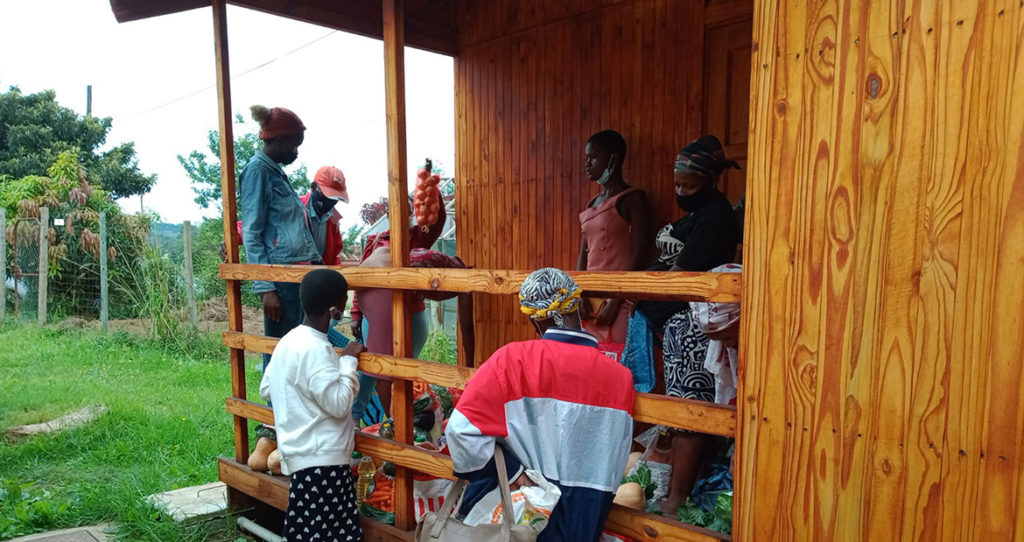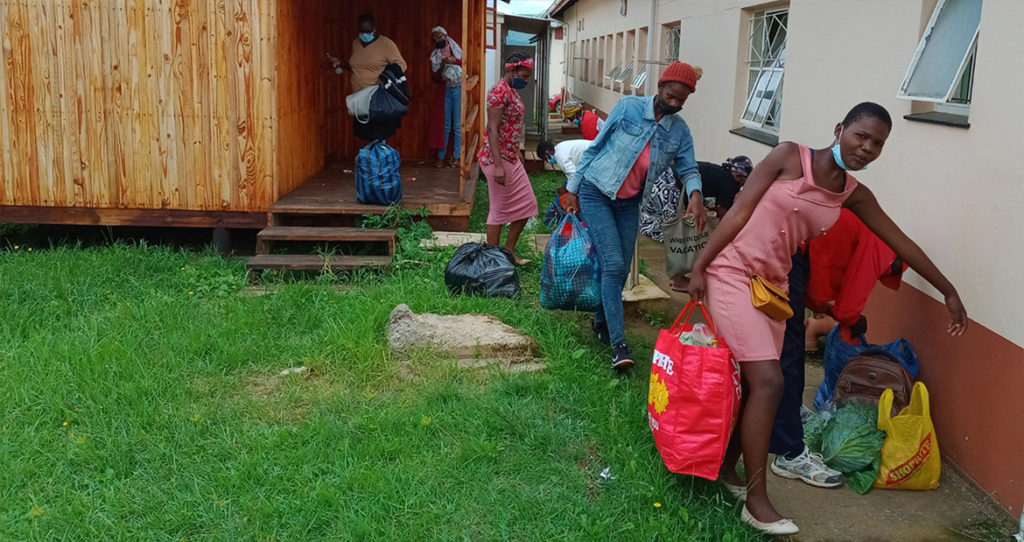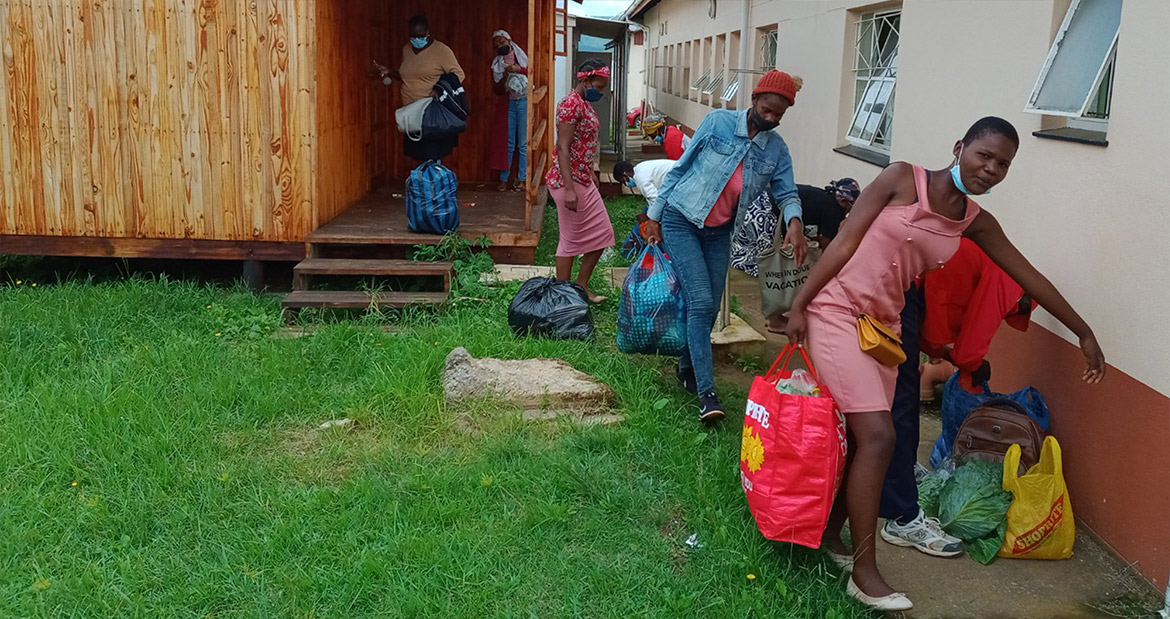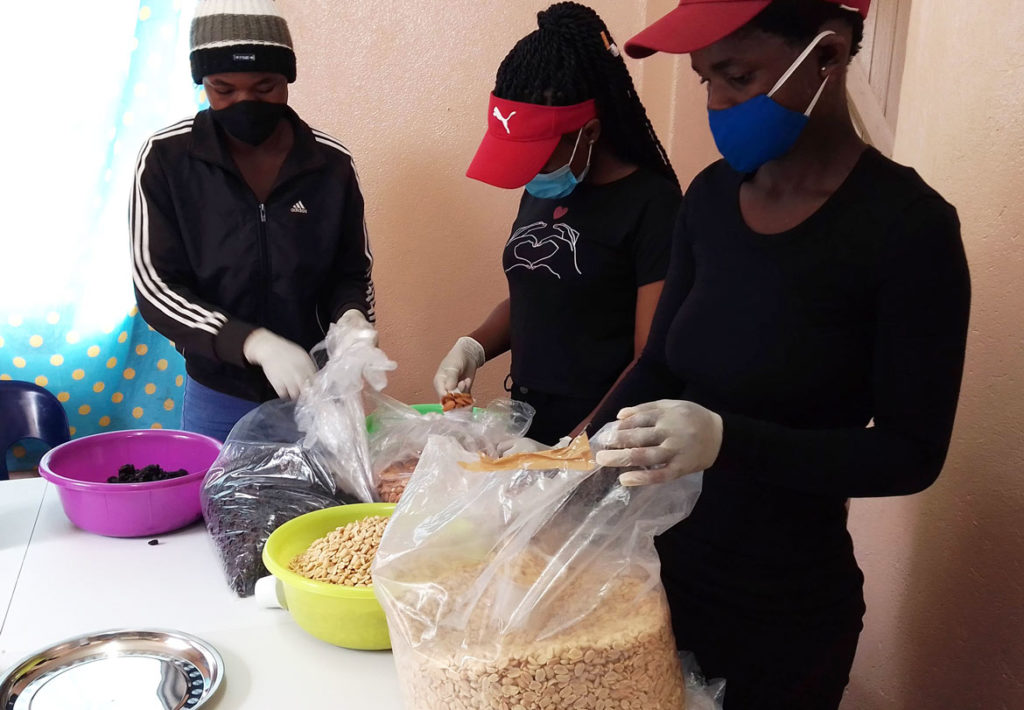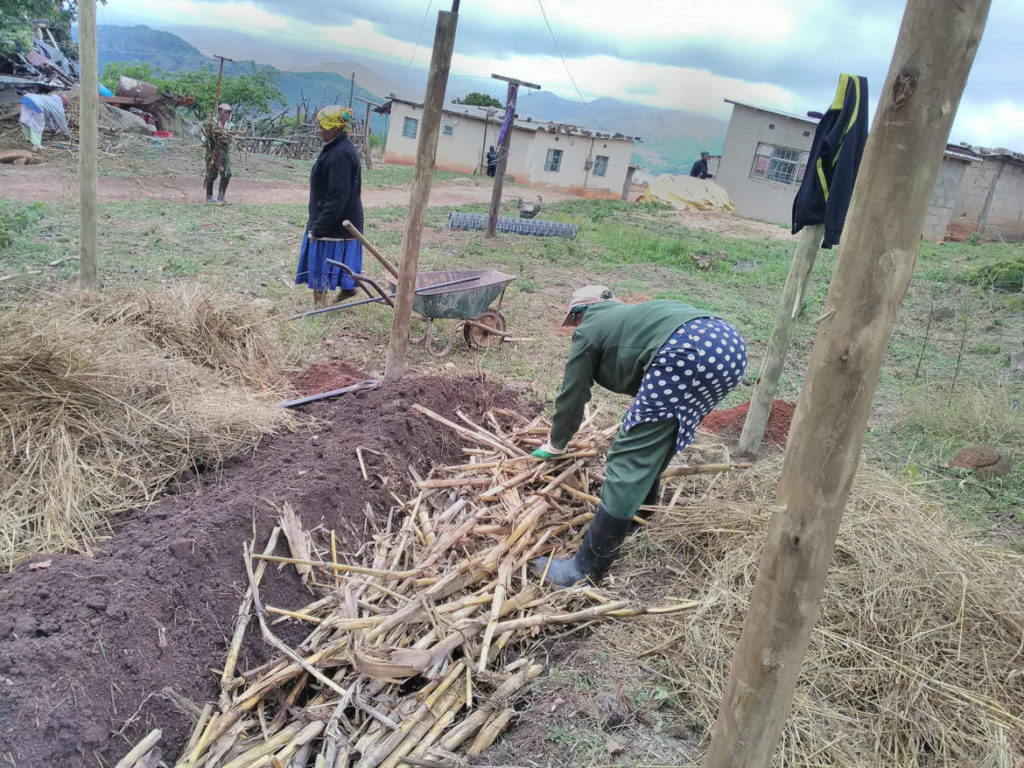Since 2013, The Ivory Foundation has been supporting the work of the association Designing Hope in southern Africa to provide nutritional support for people living with HIV/AIDS and give them access to a healthy, balanced diet.
Eswatini is the country in the world most affected by HIV-AIDS. In 2003, almost 40% of the population was HIV-positive. Thanks to treatment, this rate has fallen sharply and is now below 15%.
Since 2004, Designing Hope has been supporting HIV-positive patients at Piggs Peak Hospital. This hospital has a testing centre (VCT) which is the only place in the region to provide treatment for a population of around 50,000 people.
Designing Hope began its support by opening a canteen and preparing hot meals for the 240 patients treated at the VCT in 2004. This meal was a real encouragement for people who could have travelled up to 2 hours, and sometimes had to wait the whole day before seeing the doctor and getting a month’s treatment.
For 13 years, the association distributed a meal to each patient. With the number of beneficiaries increasing exponentially, thanks to more extensive testing and therapeutic follow-up, Designing Hope shifted its focus from distributing a hot meal to a cold snack, prepared with the local support group Fundzisa Live. This programme has been fully funded by The Ivory Foundation since 2013.
After consulting the hospital’s medical team, Designing Hope and The Ivory Foundation decided to develop the programme again in 2018, providing more targeted support for the most disadvantaged patients affected by their HIV status. 60 priority beneficiaries were identified by the hospital’s HIV patient reception centre, based on physical criteria (height/weight ratio), T4 levels and other social criteria.
With the support of The Ivory Foundation, Designing Hope now finances the monthly distribution of 60 parcels, consisting mainly of vegetables, produced in part by the Macambeni garden on the outskirts of Piggs Peak, but also oil and dried beans.
In addition, The Ivory Foundation funds the distribution of dried fruit to minors at the Teen Club.
Working closely with the councellors, Designing Hope has set up a support system dedicated to young people. The association has built and fitted out premises within the hospital, including an office for the women of Fundsiza Live association, Designing Hope’s relay in Eswatini, and 2 consultation rooms available to the hospital doctors to receive the young people from the Teen Club. This initiative also aims to make up for the lack of rooms available within the hospital.
With the support of The Ivory Foundation, Designing Hope established a new partnership with the hospital in 2020. It involves distributing 1kg of dried fruit to each young person, meticulously packed by a group of women from the support group in 33g sachets. This initiative enables HIV-positive children undergoing antiretroviral treatment to take their daily medication without having to fast.
Previously, the Global Fund provided support by supplying peanut butter for this purpose, but this assistance was discontinued in 2018. The new Designing Hope project has been enthusiastically welcomed by the hospital management, as it provides an effective response to this crucial need.
A group of women is paid to prepare the 4,000 sachets distributed each month, which are intended exclusively for under-age children. The head of the hospital makes the youngsters aware of the importance of keeping these sachets so that they have one available each time they take medicine.
With the aim of giving vulnerable people affected by HIV/AIDS access to a balanced diet, Designing Hope, with the support of The Ivory Foundation, has set up a number of projects to encourage patients to create their own vegetable gardens.
At Piggs Peak, a model garden (“demo-garden”) has been set up at the hospital’s testing centre. The aim of this garden is to raise awareness among HIV-positive patients of the many advantages of self-growing vegetables using practices that are particularly productive, water-efficient, environmentally friendly and conducive to human health. A facilitator from the Fundzisa Live support group has been appointed to look after the garden and answer any questions from interested patients.
In 2018, the hospital plot was extended and a greenhouse was also built. This greenhouse has been optimised to produce plants on multiple shelves to supply the association’s various educational and community gardens with plants.
Between 2017 and 2019, the “One House One Garden” programme was set up with the support of The Ivory Foundation. This programme aims to help the most vulnerable patients and their families, identified by the hospital, to develop their own home vegetable garden. As part of this project, Deigning Hope was able to provide logistical and financial assistance for the creation of fenced-in plots. A team of five women from Fundzisa Live was mobilised to physically set up these plots, including installing the posts, fencing and sealing the cement, all of which was financed and delivered on site. In some cases, where access to water was limited, a water supply was also put in place, which could be fed by rainwater collected from the roof or from a nearby river. In addition, a basic tool kit containing seeds was provided to enable families to start their garden with the right equipment.
The women from Fundzisa Live also set up test beds, which the family could then duplicate. This project enabled around twenty families to benefit from a vegetable garden and monitoring by the local support group.
However, a logistical challenge arose during the project: it was difficult to support the most disadvantaged families, as they lived in remote areas, far from roads and tracks accessible to lorries delivering the necessary materials (such as fencing, cement and poles). Training courses were also planned for patient volunteers. These take place at the Jardin des Savoir-Faire, run by Designing Hope with the support of The Ivory Foundation. Patients’ needs and requests are studied on a case-by-case basis. They also receive seeds and plans for starting their vegetable garden.








